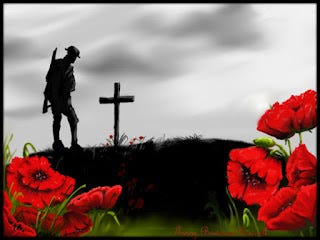We must keep working for peace
You don’t have to look far in our world to see relationships that are fractured, damaged or broken... the world has always been this way. Tensions and conflict are a normal part of everyday life and we see them occurring within families, between friends, at school, in the community, in the workplace, between nations, and even (believe it or not) in the church. Anywhere there are people, there will always be tensions and conflict. The mark of any mature relationship is not one where there’s no conflict, but one in which conflict, when it arises, is dealt with well.Left unchecked tensions and conflict can quickly escalate. Our history is full of tensions and conflicts that escalated to all-out war, and a quick look at the news from around the world shows that humanity has not learned the lessons of history.This morning I stood with some of the people of the Sealed Knot on the site where the Battle of Edgehill was fought in 1642. We remembered the terrible loss of life in that battle and the thousands more who died in the aftermath due to disease or famine. There were complex politics involved in the civil war, but at its root was a conflict between powerful individuals, each intent on getting their own way. Tensions that escalated within our country; divisions within society that grew as each side became more entrenched in their position and less willing to hear the other; mistrust that grew to the extent that each side demonised the other, which in turn opened the door to inciting violence and ultimately war.

Of course, that was 377 years ago, and we are far more sophisticated as a society today. So, we would never allow tensions to escalate like that… Unfortunately, we have… and some (not all) of the protagonists of either side of the Brexit debate seem determined to keep building the fear and hatred of the other side. Whatever final political and economic solution is found, half our population will be unhappy with the result. That’s not a ‘win’ for any of us.Jesus said, ‘Blessed are the peacemakers, for they will be called the children of God.’ (Matt 5:9) because he recognised those who wouldn’t suffer conflict to escalate and would engage in the difficult task of reconciling differences, are a real blessing in whatever their context.We need people who will honestly acknowledge the tension and conflict that exists and, no matter what the final outcome of the politics, will work to be peacemakers in our country. We need people who, instead of asking, ‘Why don’t you see things my way?’ will say, ‘Help me to see things through your eyes’. We need people who, instead of seeing the reasons we differ from those around us, will see the common humanity in others who may hold different views. We need people who will do this not just in areas of big political disagreement, but in the everyday tensions that can exist in our families, friendship groups, schools, etc. We need more peacemakers.Justin Welby said, ‘When we journey towards reconciliation, we can begin to handle diversity creatively and sincerely. We learn collectively to approach difference with curiosity and compassion, rather than fear. We begin to flourish together in previously unthinkable ways.’On 10th November many people will gather around memorials across our country, as we remember the sacrifice of so many in the wars of the last century and the conflicts of more recent times. And it is important that we do remember. Working to be peacemaker does not mean that we can avoid all war or conflict, but in remembering the cost of war we remind ourselves to do all that we can to work for peace. This not only honours those that gave their lives, but also means we are building a better world.So, can I encourage you that as you look back and remember the sacrifice of so many soldiers, and remember also those who are putting their lives on the line today, working to bring peace in our world, that you also look forward and ask God to show you where you can work as a peacemaker and help to bring peace in our homes, in our community, in our nation and in our world. Rev Barry Jackson



